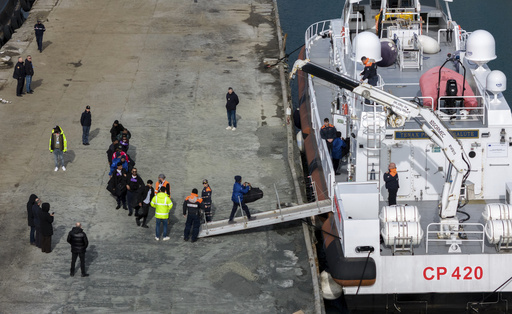In The Hague, Netherlands, the Italian government addressed the European Union’s highest court, asserting that its strategy of relocating migrants to asylum centers in Albania aligns with EU and human rights standards. The European Court of Justice is working swiftly on two cases initiated by Bangladeshi nationals whose asylum requests were turned down after a solitary virtual hearing held in an Albanian detention facility.
The rejection led the two individuals to challenge the ruling in a Rome court, which in turn sought clarification on the application of EU law from the court based in Luxembourg. Italy, in 2023, forged an agreement with Albania to accommodate up to 3,000 male migrants during the process of their asylum applications. This arrangement involves two specially constructed detention centers, costing Italy 670 million euros ($730 million) over a five-year period, administering under Italian oversight with security provided by Albanian guards.
These two Bangladeshi men were among the first migrants transferred to Albania in October. However, legal issues have delayed the operational capacity of the facilities, leaving them largely vacant. Italian Prime Minister Giorgia Meloni’s administration had committed to operationalizing these centers.
Legal representatives for the migrants argued that Albania does not meet the criteria of a “safe third country” stipulated by EU regulations, and they claimed the process infringes on personal rights. “The designation of a country as safe is invalid if it fails to ensure safety for all individuals, especially marginalized groups,” argued lawyer Dario Belluccio, emphasizing the insufficient protections for LGBTQ+ persons in Albania.
Albania has not legalized same-sex marriage, and reports from the United Nations indicate discrimination and violence against LGBTQ+ persons are prevalent in the nation. In opposition, Lorenzo D’Ascia, representing Italy, contended that the safety requirements do not need to be uniformly applied for every individual.
As per the bilateral agreement, migrants maintain their entitlement to seek asylum in Italy under international and EU legal frameworks, and the Italian government assures the protection of their rights while they are in Albania. The court’s advocate general is expected to deliver a legal opinion, which will be non-binding, in April, with a finalized decision anticipated before the summer concludes.


